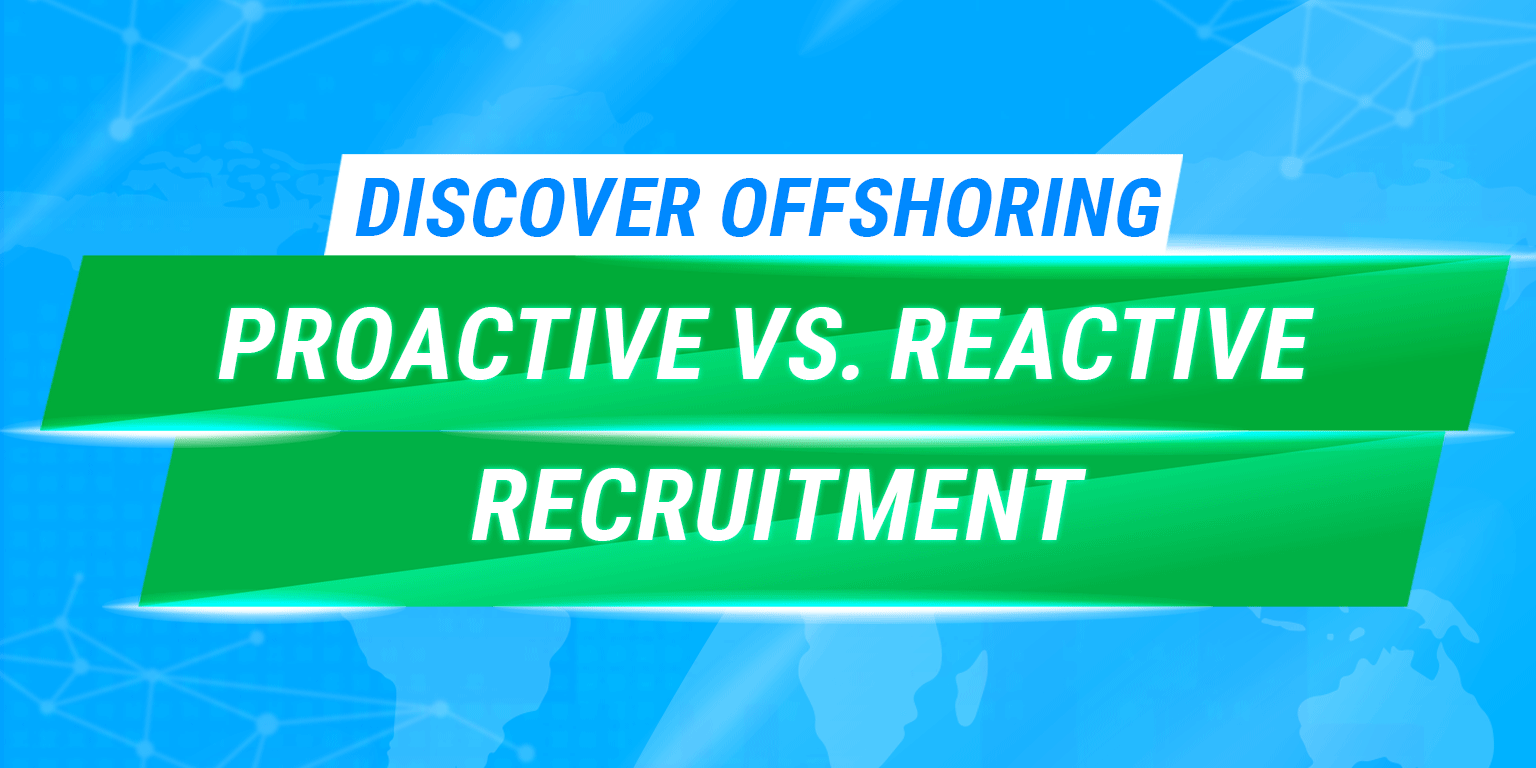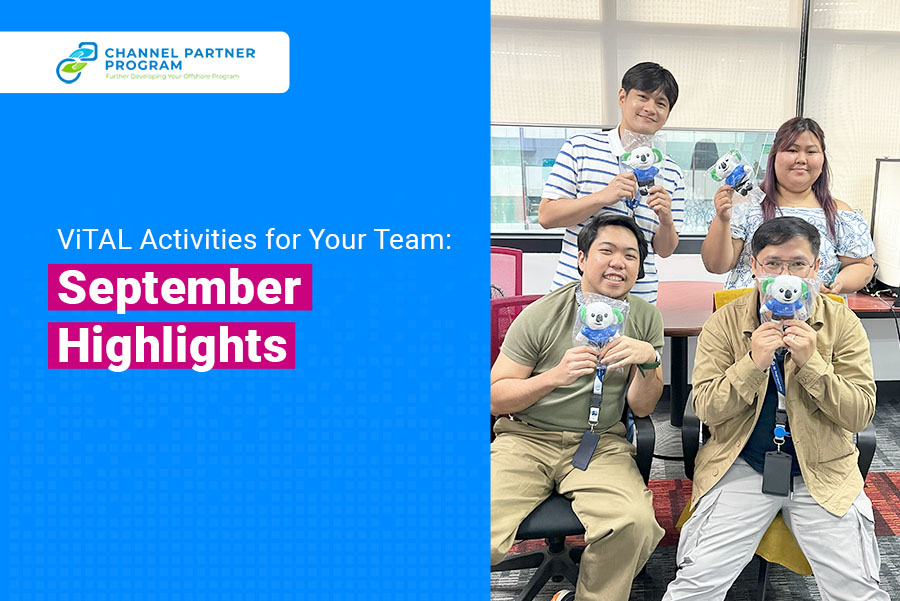For most MSPs, by the time they started posting for a job opening in their team, they probably needed that role up and running at least 2 months prior.
The impact of late hiring can create significant losses to the company from lower customer satisfaction, extra hours to the team, and ability to meet the current and upcoming demands of the industry.
With that thought in mind, let us explain what proactive and reactive recruitment are, and the value of proactive hiring for MSPs.
Proactive versus Reactive Recruitment
What is Reactive Recruitment?
Most MSPs and businesses start recruiting IT talent right when the need for employees arises. Only then would the cycle of headhunting, setting up interviews, etc., begin. This approach is called passive or reactive hiring.
Passive hiring occurs when an organization decides to look for talent after a job post has been vacated or when there’s a planned expansion.
Many business owners are more familiar with this approach, and this has always been the norm. Not because it has been always the way it was done means that it is the right thing to do.
If you’re having trouble finding the right staff after a post has been vacated, it is probably because you are being passive to your employment needs instead of preparing things beforehand.
Here are the key reasons why reactive hiring is inadvertently bringing more harm than good to your business:
- Reactive recruitment can be time-consuming, resulting in a string of negative consequences, such as increased costs and poor matches.
- It impedes productivity, especially when a role is vacated for a long time. This leaves you falling behind in your processes and constantly catching up to the needs of your business.
What is Proactive Recruiting?
Proactive hiring focuses on hiring and attracting candidates before the hiring demand starts. This way, you do not run out of resources, and you do not disrupt your organizational workflow.
Think of it as if you are organizing an event. You plan ahead of time, and you lay out your backup plans in case the original plan does not go the way you want it.
What Makes Proactive Hiring the Perfect Choice
Based on the feedback from prospects and leads, they have been searching for staff for over three months and are still searching beyond that time frame. If your goal is to have your new team within the first quarter, the best time to start building it is now.
Proactive hiring can help you save time and energy since you have already anticipated the things that are most likely to happen moving forward. You do not scramble looking for the right talent, and you reduce the possibilities of ending up with a bad hire.
Why Recruiting NOW is Better than Later
Based on our 10 years of experience here at TGT, recruitment slows down as we head to December and picks up again in late January.
This means that when things do not go as planned, finding the talent you need will take much longer.
We all know where it leads to—you’ll waste a lot of time, money, and you end up exhausting all your resources as well.
Just a side note, we understand that expanding a team will require saving up for it, and you should only post an opening when you can afford it.
But did you know that you can hire staff sooner by choosing offshoring? An offshore team has lower overhead costs so the amount you need to get started with building a team is lower.
How to Move from Reactive to Proactive
1. Identify your business’ needs head-on and as early as possible.
One sign that you will realize you are on the right track is when your talent acquisition goals are in line or in sync with your company’s goals.
At TGT, one of our top responsibilities is to find the right IT talent for you, and we do so by finding candidates who do not only possess the skills, but also personalities that are culturally fit to your company.
2. Hire not just one but two for every specific role.
One important aspect of being proactive to your business’s future needs is understanding which tasks need to be delegated to streamline your processes. One effective way of achieving this is through offshoring.
Assigning some time-consuming duties to your offshore team gives your local team more free time and they can focus more on their more important responsibilities.
Having an offshore staff who can provide IT support to your customers 24/7 will bring added benefits to your team and can ultimately boost customer satisfaction.
To set the record straight, offshore staff doesn’t take away your local team’s jobs. Rather, they act as support to elevate your team and your business.
We Help You Hire Right, the First Time
When you partner with TGT for your offshoring needs, you can gain access to a vast pool of talent, which can make it easier for you to build an offshore team.
If you’re interested in how this works, book a conversation with us. Send us an email at [email protected].





